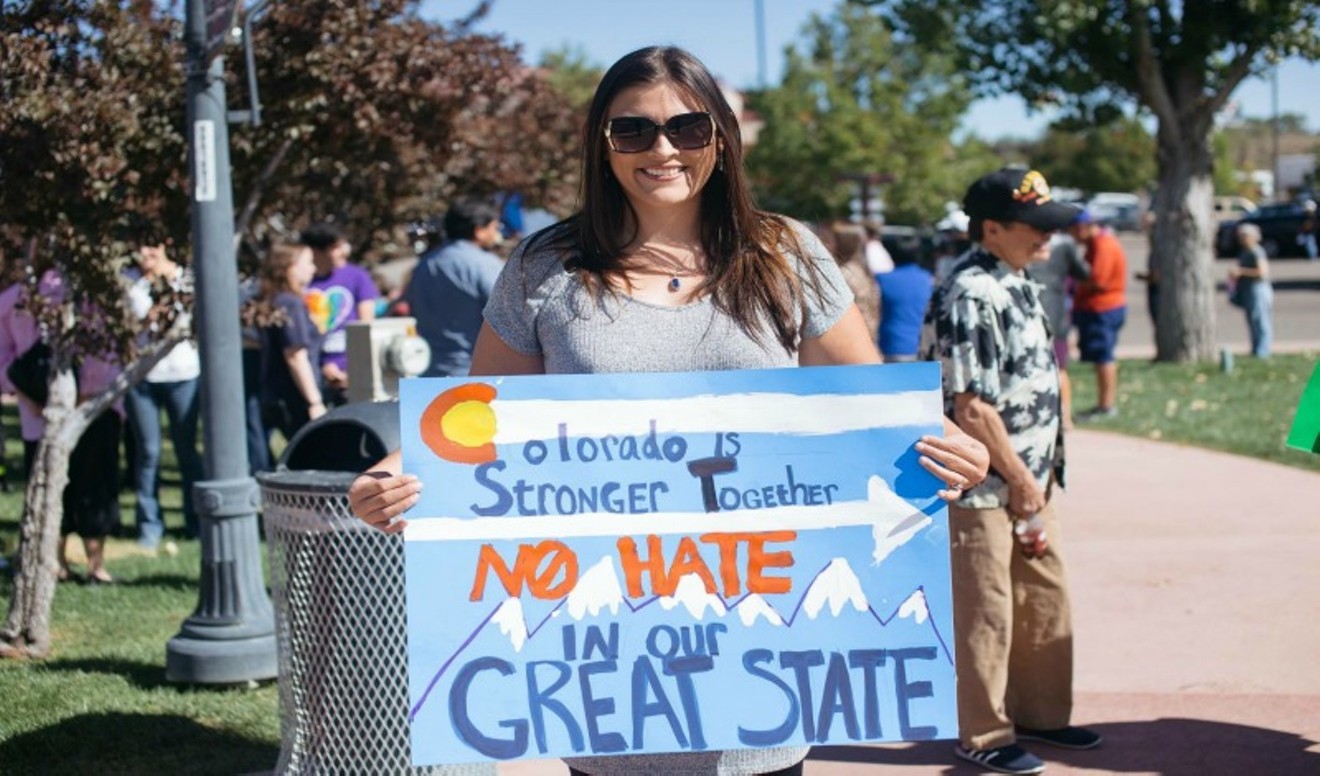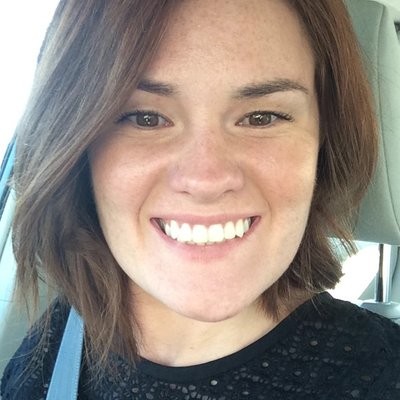Brianna Buentello has engaged in politics since she was a child. Both of her parents are Marines – they have been deployed several times — so world affairs have always been personal.
But it wasn’t until this year’s presidential election that Buentello considered running for politics, and she's not alone.
Since the presidential election, Emerge Colorado, which trains women to run for office, has seen a significant uptick in interested participants — so much so that it's training double the women, about forty, than it does in a regular odd year, and hosting two six-month training programs instead of one. "It's insane, and it's so cool at the same time to have this really major statement from women saying that they're not going to sit on the sidelines anymore — that they're ready to act and ready to demand more from their elected officials and be a voice for their community that they feel is lacking right now," says Jenny Willford, Emerge's executive director.
We spoke to Buentello, a ninth- and eleventh-grade American government, economics and world-history teacher living in Pueblo and a participant in Emerge’s leadership program, about her motivation to run for office and her plans.
Westword: Have you always been interested in politics?
Brianna Buentello: For me, even as a little girl, politics has never been impersonal. My parents were both Marines, so as a child I was very aware of world events, because they directly impacted me — especially where my father was going to be deployed to next, who was the risk to him and where was he fighting. As I grew into an adult, I had a child who has now been diagnosed on the autism spectrum and also has dyspraxia. It was like pulling teeth to get him the services he needed because they basically don’t exist in western Kansas [where Buentello and her family lived before moving to Pueblo]. Western Kansas is a well-known desert of services. The closest place I could have gotten services was over an hour away – that’s one way. A lot of that is a direct result of Governor Sam Brownback’s atrocious policies. He claims to be the standard bearer of Republican economics, but I gotta tell you, I don’t know a single person who lives in Kansas who swears by the man’s economic policies. They’ve seen how they’ve directly impacted public schools and even just public transportation. Some public buildings don’t even have AC for most of the year because there are no funds. My entire adult life has really centered a lot around the successes and failures of public policy. I’m tired of people who have no concept of how the policies they create impact everyday people. The most recent election finally gave me my final push and motivation to really see what I can do to be an effective and efficient advocate for my students and my child.
I’ve always taught in Title 1 public schools, which are traditionally underserved schools with a high population of poverty-stricken or at-risk children. My parents instilled in me at a very early age a sense of community service and civic duty. It’s something I’ve never shied away from as a professional. I grew up... how do I put this...very low on the socioeconomic scale. My parents had to work hard to get us into the middle class. A public education is something I really believe in — not just as a professional, but as a person.
Do you plan to run for a specific office?
I’m just starting the Emerge training. I haven’t decided on a particular office yet, but I am looking into state and local government. Local government, especially, because it is specifically community work.
Women in the Emerge leadership program mentioned in their initial interviews with the program that they were apprehensive of running for public office for fear of losing balance between work and family. Is that something you’ve considered?
It was something in my initial consideration. I would not be able to do this without my loving partner behind me. He has always been my greatest supporter, from the time I was just a little dreamy-eyed college student starting Amnesty International at my college. I could not do what I wanted to do successfully, I think, without the support of my partner and my family.
What makes an effective public servant?
A sense of duty, empathy and respect. I think that is the root of a lot of the anger directed toward public officials. I’m only speaking for myself here, but I think Donald Trump, part of why he won is this outrage and anger toward government and politicians and the so-called system. And I think that everyday people like me and my family and my community just want somebody who has lived in the community and experienced the same problems and has empathy for personal situations and can address real solutions to complex issues. I think that above all, knowing that you work for your community more than any PAC, or any lobbyist, is important. I think the disconnect between government and the people is huge right now. I would like to be that public servant who has the community’s best interest at heart and works hard to create real solutions to complex problems.
Was there a specific moment during this presidential election that spurned your desire to seek a political office?
I had a whole bunch of moments this last fall. But specifically, that moment was when I walked into my classroom the week after the election and just saw all the worry. As a military child, I worry about public affairs because it directly impacts my family. But I had never seen a room full of children have such concern over a presidential election and how that would directly impact their families and their lives. It occurred to me on such a deep level that we will need people to stand up for these students. We need politicians who are not afraid to be a part of the line in the sand. We need advocates who can and will push for these kids.
The millennial generation is often accused of being apathetic about politics. As a millennial, what do you say to that criticism?
Yes, millennials have a stereotype of apathy about them, and to some extent it’s true. But I have a feeling that, very quickly, that apathy is going to dissipate like the morning mist before the rising sun. Apathy is a learned condition, I think. When things are so good for so long, you are disconnected from it, you don’t think about how you can directly influence or impact anything. You just accept that this is the way things are. As we saw in this last election, the majority of Americans – I don’t think they’re going to agree with the agenda that will be coming down from federal government. I have a feeling that very soon, that apathy is going to fade and we are going to see a mobilization, really a grassroots effort by the people.
[
{
"name": "Air - MediumRectangle - Inline Content - Mobile Display Size",
"component": "12017618",
"insertPoint": "2",
"requiredCountToDisplay": "2"
},{
"name": "Editor Picks",
"component": "17242653",
"insertPoint": "4",
"requiredCountToDisplay": "1"
},{
"name": "Inline Links",
"component": "18838239",
"insertPoint": "8th",
"startingPoint": 8,
"requiredCountToDisplay": "7",
"maxInsertions": 25
},{
"name": "Air - MediumRectangle - Combo - Inline Content",
"component": "17261320",
"insertPoint": "8th",
"startingPoint": 8,
"requiredCountToDisplay": "7",
"maxInsertions": 25
},{
"name": "Inline Links",
"component": "18838239",
"insertPoint": "8th",
"startingPoint": 12,
"requiredCountToDisplay": "11",
"maxInsertions": 25
},{
"name": "Air - Leaderboard Tower - Combo - Inline Content",
"component": "17261321",
"insertPoint": "8th",
"startingPoint": 12,
"requiredCountToDisplay": "11",
"maxInsertions": 25
}
]












